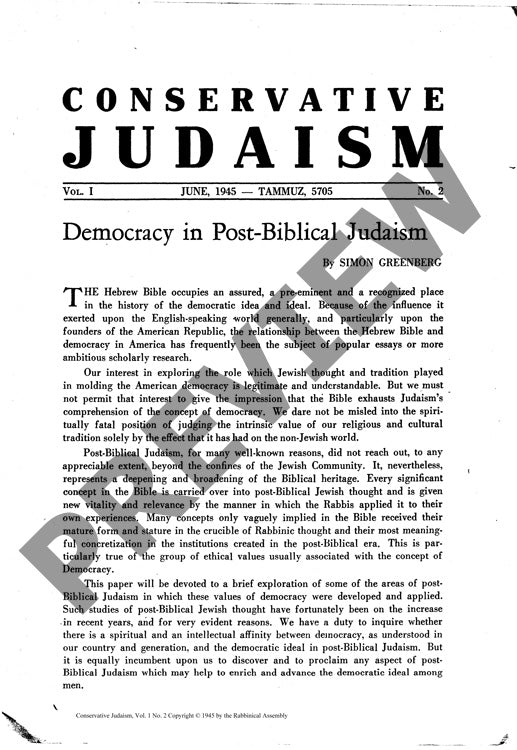Democracy in Post Biblical Judaism
Couldn't load pickup availability
When the ancient Temple fell in 70 CE, Judaism faced a radical transformation that would reshape its approach to authority, education, and social organization. Through systematic analysis of Rabbinic literature, Talmudic sources, and medieval commentaries, five distinct democratic principles emerge from post-Biblical Jewish thought: universal human equality rooted in divine justice; optimistic views of human nature supporting democratic governance; comprehensive educational systems promoting universal learning; democratization of religious authority through merit-based scholarship; and balanced individual-collective responsibilities. These principles materialized in tangible institutions - synagogues organized by community consent, universal education networks, and legal frameworks transcending ethnic and social barriers. The research traces how Rabbinic scholars expanded Biblical concepts of justice, equality, and human dignity into sophisticated democratic frameworks that preceded modern democratic movements. By examining primary Jewish texts, this analysis reveals post-Biblical Judaism as a crucial yet underexplored wellspring of democratic theory, offering both historical insight into democracy's development and relevant perspectives for contemporary democratic practice. The findings demonstrate how a faith tradition's response to historical upheaval generated enduring contributions to democratic thought and governance.

More Information
-
Physical Description
-
Publication Information
Published 1945
ISBN
-
Publication Credits
Simon Greenberg

